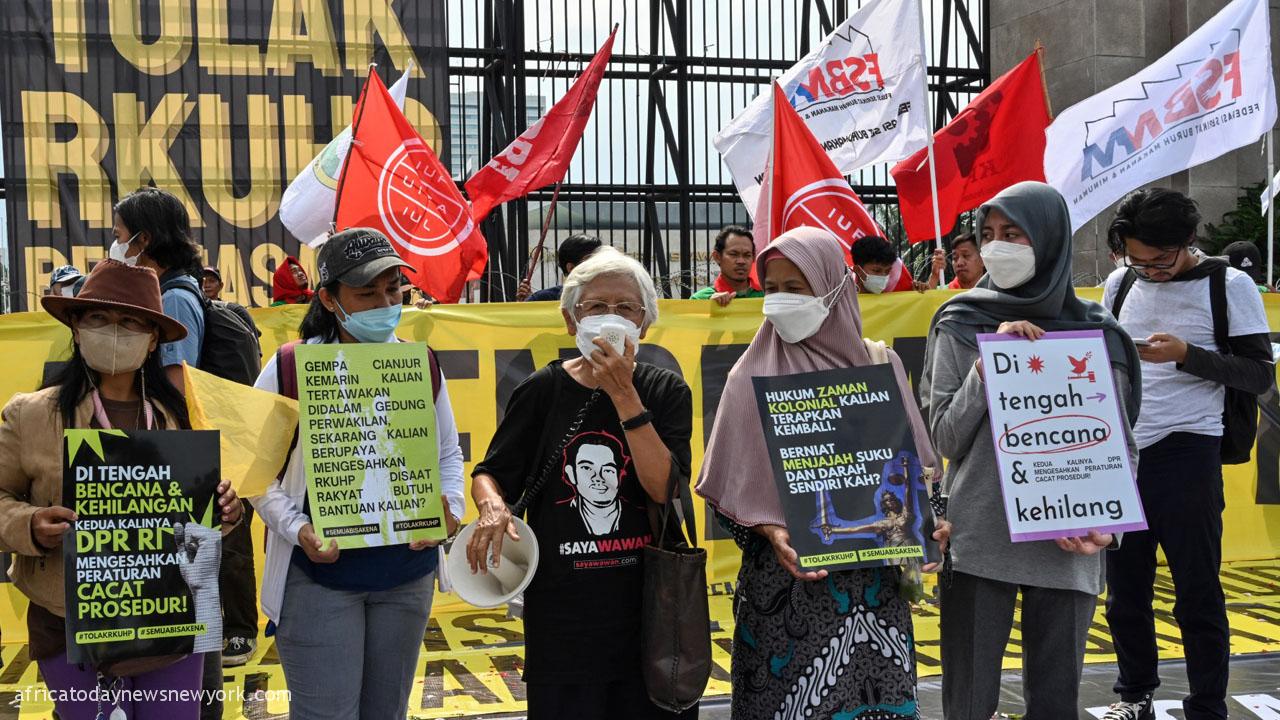The parliament in Indonesia has approved a legislation that has now outlawed sex outside marriage in a move that a number of critics have claimed was a huge setback to rights in the world’s most populous Muslim country.
The deputy house speaker Sufmi Dasco Ahmad banged the gavel to signal the text was approved and shouted ‘legal’ on Tuesday after it was endorsed by all nine parties in a surprising sweeping overhaul of the criminal code which will have far reaching implications on future laws.
Africa Today News, New York reports that revision of Indonesia’s criminal code, which stretches back to the Dutch colonial era, had been debated for decades.
Rights groups protested against the amendments, denouncing them as a crackdown on civil liberties and political freedoms as well as a shift towards fundamentalism in Muslim-majority Indonesia, where the constitution recognises five religions alongside Islam.
‘We have tried our best to accommodate the important issues and different opinions which were debated,’ Minister of Law and Human Rights Yasonna Laoly told parliament.
‘However, it is time for us to make a historical decision on the penal code amendment and to leave the colonial criminal code we inherited behind.’
Read Also: Russian Parliament Finally Okays Annexation Move In Ukraine
The article criminalising sex outside marriage has been criticised by Indonesian business organisations as detrimental to tourism, though authorities insist foreigners travelling to Bali would not be affected.
The new code, which still needs to be approved by President Joko Widodo, will come into force after three years.
Some of the most controversial articles criminalise extra-marital sex, as well as the cohabitation of unmarried couples.
According to the text sighted by Africa Today News, New York on Wednesday, sex outside of marriage will be punished with one year in prison while unmarried people living together could face six months in jail.
Albert Aries from the Law and Human Rights Ministry defended the amendments before the vote and said the law would protect marriage institutions.
Sex outside marriage could only be reported by a spouse, parents or children, drastically limiting the scope of the amendment, he said.
At a business conference before the vote on Tuesday, US ambassador to Indonesia Sung Yong Kim said he was concerned about “morality clauses” in the criminal code that could have a negative impact on businesses.
Previous drafts had planned to make homosexuality illegal, but this has disappeared from the final text.
But the new rules on adultery and cohabitation could also be used to criminalise the LGBTQ community in Indonesia, said Andreas Harsono of Human Rights Watch, as the country does not acknowledge same-sex marriage.
Several other countries prohibit adultery and enforce harsh punishments on extra-marital sex, including Iran, Saudi Arabia, Morocco, and the Philippines.

